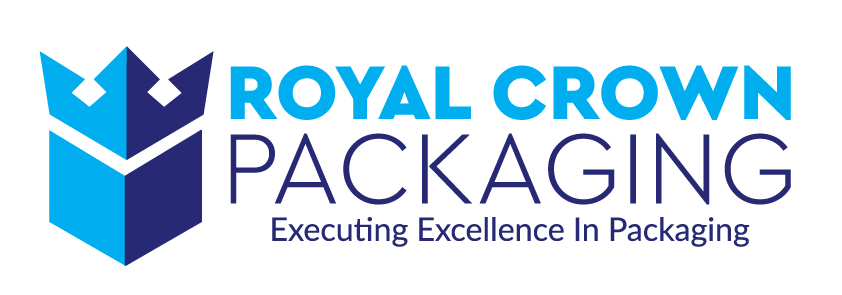Sustainable Packaging in Ghana: Balancing Cost and Environmental Impact.
As Ghana grapples with mounting environmental challenges caused by packaging waste, especially plastic pollution, a national conversation around sustainable packaging is taking center stage. This shift involves the promotion of biodegradable alternatives, improved recycling systems, and the rising responsibility of businesses to lead in eco-conscious innovation. But perhaps one of the most promising developments is the increased use of corrugated packaging solutions, which offer a balance between sustainability and cost-effectiveness.
The Push for Sustainable Packaging in Ghana
For decades, plastic has been the default choice for packaging across industries in Ghana due to its low cost and convenience. However, its environmental impact is severe, contributing to clogged drains, urban flooding, ocean pollution, and rising public health concerns.
Today, a growing number of stakeholders including government agencies, businesses, NGOs, and consumers are advocating for greener alternatives. These include biodegradable materials made from plant-based sources like cassava starch, bamboo, and corn husks. While these options are more sustainable, they also come with higher price tags that small and medium-sized enterprises (SMEs) often struggle to absorb.
Corrugated Packaging: A Scalable, Sustainable Solution
One sustainable packaging option gaining traction in Ghana is corrugated packaging boxes, cartons, and protective wraps made from layers of recycled paper or cardboard. Corrugated packaging stands out because:
- It is biodegradable and easily recyclable.
- It uses locally available raw materials such as recycled paper.
- It is cost-effective for both large corporations and SMEs.
- It offers customizability for various industries, from e-commerce and retail to agriculture and manufacturing.
Many Ghanaian producers and exporters are turning to corrugated solutions, especially for shipping and protective packaging, which reduces reliance on plastic foam and shrink wrap. Companies in the fruit, cocoa, and handicraft export sectors now use corrugated boxes that are strong, lightweight, and environmentally friendly, appealing to both international buyers and conscious consumers.
The Cost-Sustainability Dilemma
The challenge remains: how can businesses transition to sustainable packaging without significantly raising costs?
For biodegradable plastics and organic materials, the unit cost is still higher than conventional plastic packaging. However, corrugated solutions offer a cost-efficient middle ground particularly when materials are sourced locally and produced at scale.
Government incentives, such as tax reliefs or subsidies for green packaging manufacturers, could further reduce costs and encourage broader adoption.
Recycling Efforts Taking Root
While sustainable materials are crucial, recycling also plays a vital role. Ghana has introduced several initiatives to tackle packaging waste, including:
- The Ghana Recycling Initiative by Private Enterprises (GRIPE), which aims to promote responsible plastic waste management.
- Public-private partnerships improving waste segregation and collection.
- Community-driven recycling programs like “Garbage Out, Money In,” incentivising the public to recycle.
Corrugated packaging naturally fits into these efforts, as it is among the most widely recycled materials globally. Increasing recycling infrastructure and supporting paper recovery businesses will help close the loop and create a circular economy.
Businesses Driving the Change
Ghanaian businesses are becoming more environmentally conscious. Leading firms in beverages, cosmetics, agriculture, and retail are:
- Switching to recyclable or reusable packaging.
- Partnering with recycling firms and NGOs.
- Designing packaging that reduces material usage and carbon footprint.
- Educating consumers on how to dispose of packaging responsibly.
SMEs are also showing innovation by using locally sourced, eco-friendly packaging such as banana leaves, woven baskets, and recycled corrugated boxes offering affordable and creative solutions to plastic dependency.
Policy, Advocacy, and Consumer Power
Ghana’s Environmental Protection Agency (EPA) has been vocal about regulating plastic use and promoting alternatives. Policies around Extended Producer Responsibility (EPR) and talks of plastic bans or levies are nudging businesses to act more sustainably.
Consumers, too, are demanding more eco-friendly products. As public awareness grows, many are willing to pay a premium for products that use sustainable packaging especially among the urban middle class.
Conclusion: A Path Toward Circular Packaging
The journey toward sustainable packaging in Ghana is well underway. Corrugated packaging stands out as a practical and scalable solution that bridges the cost-environmental gap. When combined with recycling efforts, biodegradable alternatives, and responsible business practices, Ghana can build a packaging ecosystem that protects the planet and powers economic growth.
By aligning government policy, private sector innovation, and consumer demand, Ghana has the potential to become a regional leader in sustainable packaging creating jobs, preserving ecosystems, and promoting a truly circular economy.
If you want to be environmentally responsible while keeping your packaging cost under control, reach out to Royal Crown Packaging Limited via email on [email protected] and we’ll provide you with an array of corrugated packaging solutions to give your business the needed leverage.

